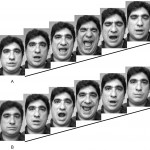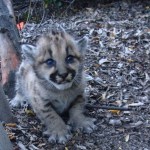Human-Animal Relationship
I will be reposting some dog-related posts from the archives in the coming few weeks as I prepare for the course I'm teaching this semester on dog cognition. Please let me know if you find something inaccurate or unclear.
Domesticated dogs seem to have an uncanny ability to understand human communicative gestures (see here). If you point to something the dog zeroes in on the object or location you're pointing to (whether it's a toy, or food, or to get his in-need-of-a-bath butt off your damn bed and back onto his damn bed). Put another way, if your attention is on something, or if your…
In most zoos and animal parks, polar bears (ursus maritimus) attract such a disproportionate amount of attention that they are referred to in the industry as "charismatic megafauna," or in other words, "really cool animals." Perhaps it is because it is especially rare for the average zoo-goer to happen upon a polar bear in the wild, or because they live in such an inhospitable environment. Perhaps it's just because polar bears are so damn cute.
Maybe we should just blame Coca-Cola.
Whatever the reason, psychologists Michael J. Renner and and Aislinn L. Kelly of West Chester University in…
It's been a pretty long stressful week around here, and not just because of Pepsipocalypse and the resulting fallout. But, well, I'm back, and I have an awesome paper to tell you about. When I saw it I just KNEW it had to be blogged.
Mythbuster Adam Savage sets the yawning in motion in Mythbusters attempts to start a yawning epidemic across the globe
Did watching that video make you yawn? Chances are it did, and you can thank contagious yawning for it. What is contagious yawning? Contagious yawning is a very well-dcoumented phonemenon wherein yawning is triggered by the perception of others…
I am quite full from the last minute Fourth of July dinner that my brother and I threw together - featuring grilled chicken-apple sausages, roasted pork tenderloin with lemon-pepper dry rub, and chocolate peanut butter cookies. Too full to blog. Instead as I'm working my way through season six of Buffy on Netflix, I've got something different for you today.
Instead of the usual Monday fare, I want you all to go over and say hello to The Dog Zombie.
She describes herself thusly:
The Dog Zombie studies dog brains by pursuing DVM and MS degrees. She is currently in her research year, between…
Figure 1: Mountain lion kitten.
From my good friends at LAist:
Since 2002, biologists having been tracking and studying the movements of mountain lions in the Santa Monica Mountains, Simi Hills and Santa Susana Mountains to better understand how they live surrounded by development.
A total of 19 pumas have been tracked during the study, including the three kittens. Currently, nine are being tracked via GPS or VHF, which makes it the largest number of lions being tracked at the same time.
The three kittens are exciting for scientists as the unconfirmed father could be P12 (P stands for Puma,…
Happy Father's Day, everyone!
I spent a lot of time today thinking back to why I started blogging in the first place, while I was at my parents house doing the other-than-science things that I love to do: playing with the dog, cooking, gardening. I realized that I've not done enough of that stuff lately.
I've only been seriously doing the blog thing (in the current format) since January, and I've now been here at Scienceblogs around two months, so it was time to reflect. The transition from Wordpress obscurity to Scienceblogs prominence happened relatively quickly for me, and I think it's a…
A few weeks ago I emailed Vanessa Woods and asked her pretty please if I could review her book. After reading all of the bonobo and chimpanzee papers written by Vanessa and her husband Brian Hare (both now at Duke) over the years, as well as their research on domesticated dogs and silver foxes (some of which I wrote about on the old blog), I couldn't wait to check out the book. So I was super excited to find it waiting in my department mailbox this past Wednesday morning. By Friday night, I had read the book cover to cover.
So, here's the short review: read this book.
And, okay, watch this…
Yesterday afternoon, I watched the livestream of the "All Creatures Great and Smart" session of the World Science Festival in New York City. The session was absolutely fantastic, and featured Brian Hare, Vanessa Woods, Jeremy Niven, Patrick Hof and Klaus Zuberbühler.
The conversation challenged long-held assumptions about the differences between "animal" and "human", and included fascinating discussion about pin-sized brains that can count, categorize, and hold a grudge against those who've tried to swat them. Does your dog really think and feel like a human? Do our closest primate…
The perspective that whales, dolphins, and other such marine mammals should be afforded "human rights" has surfaced again.
I thought I'd revisit a post I wrote about this several months ago, from the archives, when this first hit the news after the AAAS conference in San Diego. So here's a modified, updated version of the original post.
The blogosphere is all a-twitter with talk of the recent commentary in Science that dolphins should be considered people. Well, sort of people. Non-human people.
On the heels of the incident at SeaWorld in Florida in which a trainer was killed by one of the…
Let me tell you a little story. When I was born my parents had two cats. One was named Garfield. The other...well, I don't remember what the other one was called. Not long after I was born, and little Jason was coughing up furballs, the doctors informed the parents that their little bundle of skin and hair was allergic to cats. It was then that teams were picked and lines were drawn. It was me or the cats. Luckily, the parents decided to keep me, and lose the cats. Imagine how much it would have sucked if they decided to keep the cats and lose me. I imagine if my younger brother had actually…
The party isn't over yet! Here's another helping of Monday Pets. Enjoy!
Wild Dog crawled into the Cave and laid his head on the Woman's lap... And the Woman said, "His name is not Wild Dog any more, but the First Friend."
--Just So Stories, Rudyard Kipling.
Archaeological evidence indicates that dogs were already a part of human society around the end of the Ice Age. Small dog skeletons have been unearthed in human communities as far back as 6- to 12-thousand years ago in Europe, the Middle East, and China. The jawbone of a domestic dog was found in a late Paleolithic grave in Germany, and…








